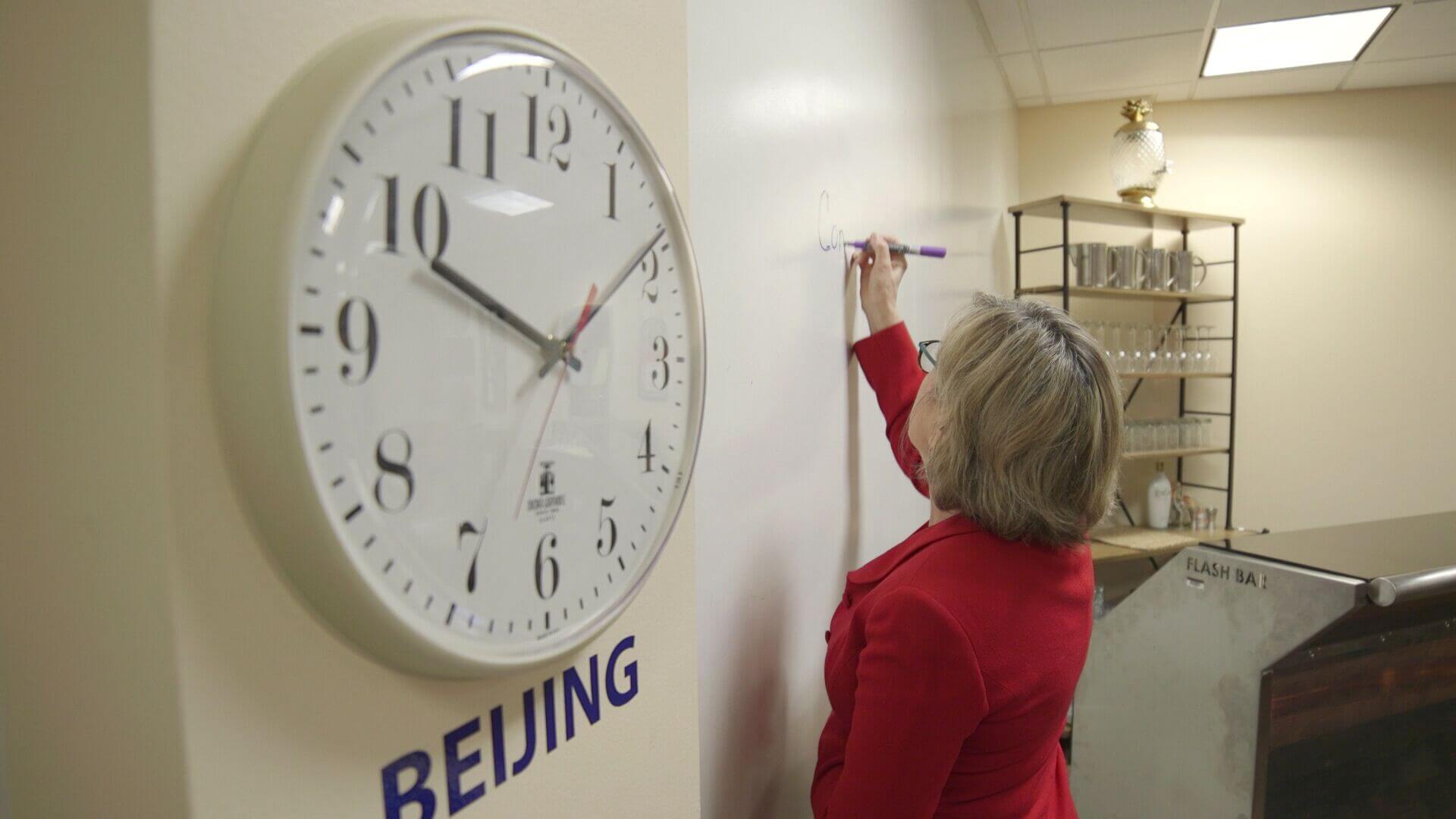Overview
The Associate in Arts degree in Teacher Education provides students with the skills needed to become effective educators. Students learn about the functions of schools, the processes in teaching, and many effective teaching strategies. Using a well-balanced, hands-on approach, this degree prepares its majors to teach and assess students at all ability levels. Furthermore, it prepares its majors either to work in the educational field as paraeducators or to transfer to a four-year degree program to become a teacher. The most popular transfer option is through a partnership between WMCC and PSU called the North Country Teacher Certification Program. Click here to learn more.
Praxis Core
Students looking to transfer to a college or university must achieve a passing score on all three Praxis Core Skills exams (reading, writing, math). Students must also maintain a GPA of 2.7 or 3.0 depending on the college or university to which they transfer. Therefore, they should reach out to the college or university in advance.
Health Considerations
Candidates for positions and careers in education should explore health requirements associated with employment in a school setting. Prospective students with special needs that may affect their learning are encouraged to contact the Accessibility Services Coordinator to discuss available services.
Character Expectations
Because the health and safety of children, adolescents, and other learners are of paramount concern to the program, applicants for teaching positions in public and private schools in New Hampshire must, prior to employment, undergo background checks through the New Hampshire Department of Safety at https://www.nhsp.dos.nh.gov/our-services/criminal-records/criminal-history-record-requests
For state certification as an educator in New Hampshire, students should review the information on the NH Department of Education’s website or contact them directly at https://www.education.nh.gov/
First Year
| Fall Semester | Lec | Lab | Cr | |
| EDU101W | Introduction to Exceptionalities | 3 | 0 | 3 |
| EDU104W | Foundations of Education | 3 | 0 | 3 |
| EDU108W | Praxis Prep | 1 | 0 | 1 |
| ECE112W | Child Growth and Development | 3 | 0 | 3 |
| ENGL120W | College Composition | 4 | 0 | 4 |
| PSYC111W | Psychology | 3 | 0 | 3 |
| Semester Total | 17 | 0 | 17 | |
| Spring Semester | Lec | Lab | Cr | |
| EDU210W | Foundations of Diversity | 3 | 0 | 3 |
| EDU218W | Design of Instruction | 3 | 0 | 3 |
| HUMANITIES* | 3 | 0 | 3 | |
| LIBERAL ARTS | 3 | 0 | 3 | |
| SCIENCE | 3 | 2 | 4 | |
| Semester Total | 15 | 2 | 16 | |
| First Year Total | 33 | |||
Second Year
| Fall Semester | Lec | Lab | Cr | |
| EDU209W | Integrated Arts | 3 | 0 | 3 |
| MATH220W | Math in Our World l | 4 | 0 | 4 |
| PSYC200W | Educational Psychology | 3 | 0 | 3 |
| LIBERAL ARTS | 3 | 0 | 3 | |
| LIBERAL ARTS | 3 | 0 | 3 | |
| Semester Total | 16 | 0 | 16 | |
| Spring Semester | Lec | Lab | Cr | |
| EDU207W | Teaching and Learning | 3 | 0 | 3 |
| EDU211W | Elementary Literacy | 3 | 0 | 3 |
| MATH222W | Math in Our World II** | 4 | 0 | 4 |
| LIBERAL ARTS | 3 | 0 | 3 | |
| SOCIAL SCIENCE | 3 | 0 | 3 | |
| Semester Total | 16 | 0 | 16 | |
| Second Year Total | 32 | |||
| Total for A.S. Degree | 65 | |||
Program Outcomes
Upon successful completion of this degree, graduates:
- Understand the learning process and the way curricula are planned, adopted, implemented, and
- Are able to apply various instructional modalities and educational delivery
- Knowledge of how children and adolescents learn and develop, and thus can provide learning opportunities that support their intellectual, social, and personal
Technical standards provide guidance to students about the skills and abilities they need to function successfully in the program and ultimately as teachers in the public and/or private school classroom. Applicants who suspect they may be unable to meet one or more of the technical standards should contact program faculty members to discuss their concerns. Program faculty considers all academically qualified candidates, provided that the technical standards can be met with reasonable accommodations. Students in the program must have:
- Sufficient strength, stamina, and motor coordination.
- Sufficient hearing and visual acuity to ensure a safe environment, along with an ability to respond quickly to emergencies.
- Sufficient verbal ability to express and exchange information and ideas, as well as to interpret important instructions to children, adolescents, colleagues, and parents.
- Sufficient writing skills to record students’ daily progress and milestones, and to compose a variety of reports.
- An ability to work with frequent interruptions, to respond appropriately to unexpected situations, and to cope with extreme variations in workload and stress levels.
Robin Scott
Social, Educational, and Behavioral ScienceProfessor of Education / Department Chair of Social, Educational, and Behavioral Science / Program Coordinator of Education
65-66 Credits Required
of students qualify for financial aid



